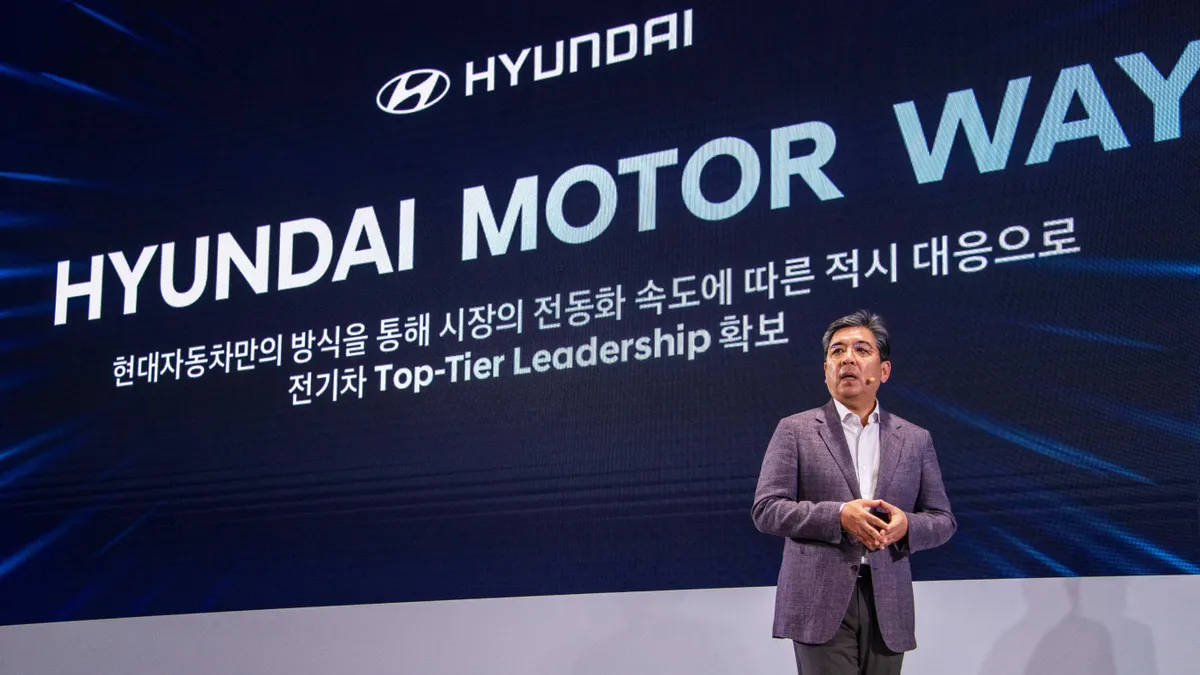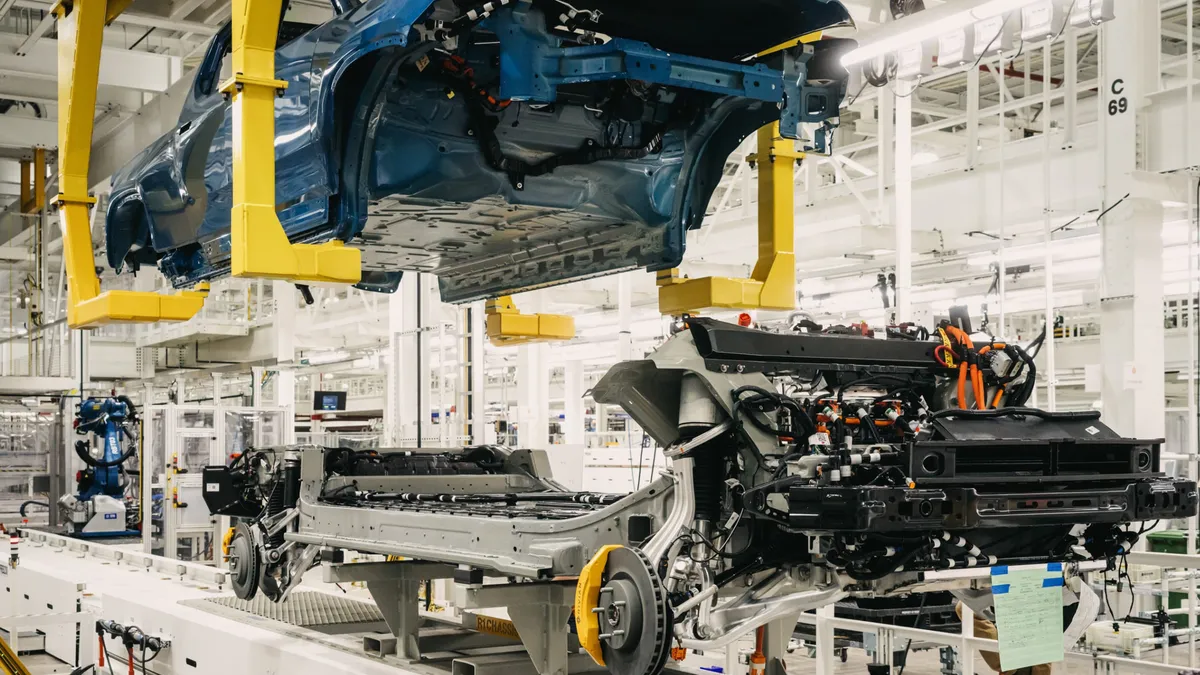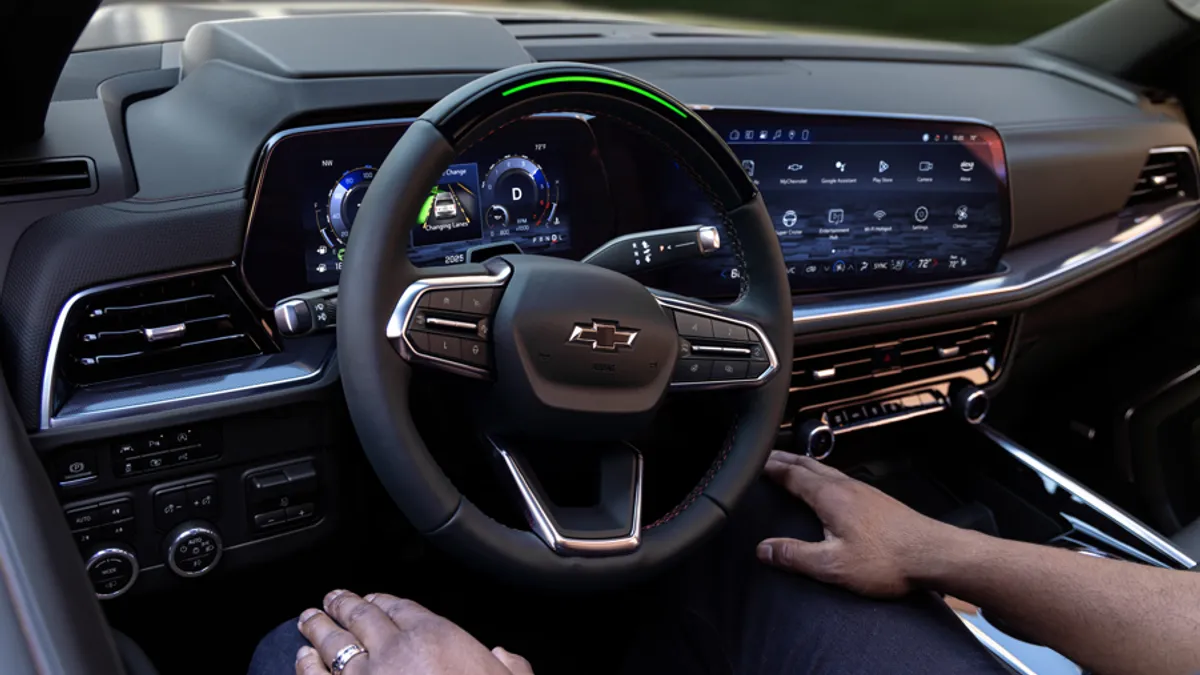Dive Brief:
- At Hyundai’s 2023 CEO Investor Day, the automaker shared its mid- to long-term business strategy, boosting its annual electric vehicle sales target to 2 million units annually.
- The company will invest $85 billion to increase vehicle production, develop next-generation battery technology and launch an all-new modular EV vehicle architecture to significantly reduce production costs.
- The plans are part of the company’s strategy to take a leadership position in the global EV market.
Dive Insight:
The revamped plans come as the world's automakers are competing to become leaders in the rapidly growing global EV market that’s currently dominated by Tesla.
A key part of Hyundai’s aggressive strategy includes the development of a next-generation modular EV architecture and boosting production capacity.
At the Investor Day in Seoul, Korea, the automaker laid out its future vision of becoming an electric mobility provider. The plans will include investments of tens of billions for the research and development of new EVs, advanced battery chemistries, software, autonomous driving and other advanced technologies.
Of the nearly $85 billion investment, roughly $28 billion will be dedicated to developing EVs and new battery technology. By 2025, Hyundai plans to introduce lithium-iron-phosphate batteries with higher energy density to improve range and cold weather performance. The number of models to be equipped with lithium-iron-phosphate batteries will be expanded for emerging markets first, according to the company.
In addition, Hyundai plans to implement new technology for EVs that enables battery charging and discharging while driving, using an independent power bank in the vehicle.
Hyundai's second-generation EV platform will replace its current Electric-Global Modular Platform (E-GMP), which is the foundation for the current Ioniq 5 SUV and Ioniq 6 electric sedan.
This new EV platform will be used on 13 new models launched under the automaker’s brands, which include Kia and luxury brand Genesis. The platform will feature what Hyundai calls an “Integrated Modular Architecture,” which will standardize many EV components to be shared among different models to significantly reduce complexity and production costs.
According to Hyundai, its new EV platform will include over 80 common modules that can be utilized in combinations and shared across different vehicle segments, resulting in significant cost savings. These vehicle segments include small and large crossovers, SUVs and pickup trucks, as well as flagship electric models for the Genesis brand.
Hyundai’s future EV platform will also feature software-based vehicle architecture compatibility for over-the-air updates, including software updates to support Level 3 and higher autonomous driving capabilities.
The automaker’s global EV production is currently 8% in 2023 but is expected to jump to 34% percent by 2030.
To support the ramp up of EV production, Hyundai is building dedicated factories equipped with new “smart factory” technologies to maximize the efficiency of EV production. The automaker’s first dedicated EV factory is currently under construction in Georgia. Production is slated to begin in the first half of 2025, with an annual production capacity of 300,000 vehicles to meet the demand for EVs in North America. Hyundai aims for 75% of EVs it sells in the U.S. to be built in Georgia. The automaker is also building an EV battery factory in the state.
Hyundai’s existing ICE vehicle assembly lines will also produce EVs to reduce costs and time. Utilizing existing lines is faster than building new plants, according to Hyundai. Therefore, production can be ramped up more quickly to meet growing EV demand as needed. A second dedicated EV factory will be located in South Korea. The start of mass production at this plant is targeted for 2025.
As Hyundai executes its “Hyundai Motor Way” strategy through 2030, its investments will be evenly split over the next three years between internal combustion engine vehicles and future electric technologies. Starting in 2026, investments in gas-powered vehicles will gradually decrease, according to the press release.
Along with EV development, Hyundai will continue to work with its strategic partners to advance plans for autonomous driving, software, robotics, electric air mobility and hydrogen fuel cell technology.














